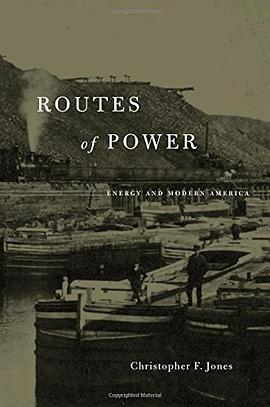美孚石油公司史 豆瓣
The history of the standard oil company
作者:
[美]艾达•塔贝尔
译者:
肖华锋
/
方芳
广西师范大学出版社
2019
- 2
◉内容简介
本书以调查报道的方式,披露了洛克菲勒及美孚石油公司建立石油垄断的种种手段和累累劣迹。塔贝尔花费了五年的时间,通过对大量文献资料的阅读分析,以及对相关人员的走访,向人们清晰地揭露了洛克菲勒靠非法牟利而发迹的所谓“美孚石油方式”。然而,其写作手法并非义愤填膺的谴责,她以翔实的数据,冷静、客观的笔触,实事求是地勾勒出了石油垄断帝国的发展史,以及洛克菲勒集团的全貌。
◉媒体推荐
◒
《美孚石油公司史》就像故事一样有意思,又比商业小说更具传奇色彩。它讲述了美孚石油公司崛起、发展,最终称霸的历史。塔贝尔小姐试图站在不同的立场还原这段历史,而她的文字,正是对洛克菲勒先生“石油业属于我们”的说法的有力指控。——《纽约时报》
◒
塔贝尔的系列调查报道引发了轰动。1911年,最高法院在根据她的报道进行追踪调查后,作出了解散美孚石油托拉斯的判决。这次判决,是塔贝尔的巨大胜利,也是洛克菲勒的重大失败。塔贝尔亦因此被视为现代调查性报道之母。——《华尔街日报》
◒
非极尽铺陈之能事,难以将塔贝尔小姐的成就诉诸笔墨。描述事实如此谨慎,褒贬观点如此理智,她的这本书,似乎已达到工业史写作的最高水准。——《经济学杂志》
◉编辑推荐
◒美国黑幕揭发运动代表作品
《美孚石油公司史》为艾达•塔贝尔于《麦克卢尔杂志》刊发的系列文章结集,与林肯•斯蒂芬斯的《明尼阿波利斯之羞》、雷•贝克的《工作的权利》一道,揭开了美国黑幕揭发运动的序幕。
◒导致美孚石油托拉斯解体,推动美国反垄断法律体系的建立与完善
《美孚石油公司史》的出版,将该公司在垄断石油业的过程中采取的不公正手段展示在公众面前,让美孚石油托拉斯无法再逃脱法律的制裁。美国最高法院以本书为重要依据对美孚石油公司进行调查,最终作出了解散托拉斯的判决。
◒开创现代调查性报道新范式,新闻学必读经典
艾达•塔贝尔花费了五年的时间深入研究各类文件资料,亲自对事件相关者进行采访调查,报道内容理智客观,全面而真实地呈现了美孚石油公司的成长史,让读者既能看到洛克菲勒身上的非凡品质,也能了解其为达目的而使用的各种违约、违法的手段。塔贝尔亦因此被称为现代调查性报道之母。
本书以调查报道的方式,披露了洛克菲勒及美孚石油公司建立石油垄断的种种手段和累累劣迹。塔贝尔花费了五年的时间,通过对大量文献资料的阅读分析,以及对相关人员的走访,向人们清晰地揭露了洛克菲勒靠非法牟利而发迹的所谓“美孚石油方式”。然而,其写作手法并非义愤填膺的谴责,她以翔实的数据,冷静、客观的笔触,实事求是地勾勒出了石油垄断帝国的发展史,以及洛克菲勒集团的全貌。
◉媒体推荐
◒
《美孚石油公司史》就像故事一样有意思,又比商业小说更具传奇色彩。它讲述了美孚石油公司崛起、发展,最终称霸的历史。塔贝尔小姐试图站在不同的立场还原这段历史,而她的文字,正是对洛克菲勒先生“石油业属于我们”的说法的有力指控。——《纽约时报》
◒
塔贝尔的系列调查报道引发了轰动。1911年,最高法院在根据她的报道进行追踪调查后,作出了解散美孚石油托拉斯的判决。这次判决,是塔贝尔的巨大胜利,也是洛克菲勒的重大失败。塔贝尔亦因此被视为现代调查性报道之母。——《华尔街日报》
◒
非极尽铺陈之能事,难以将塔贝尔小姐的成就诉诸笔墨。描述事实如此谨慎,褒贬观点如此理智,她的这本书,似乎已达到工业史写作的最高水准。——《经济学杂志》
◉编辑推荐
◒美国黑幕揭发运动代表作品
《美孚石油公司史》为艾达•塔贝尔于《麦克卢尔杂志》刊发的系列文章结集,与林肯•斯蒂芬斯的《明尼阿波利斯之羞》、雷•贝克的《工作的权利》一道,揭开了美国黑幕揭发运动的序幕。
◒导致美孚石油托拉斯解体,推动美国反垄断法律体系的建立与完善
《美孚石油公司史》的出版,将该公司在垄断石油业的过程中采取的不公正手段展示在公众面前,让美孚石油托拉斯无法再逃脱法律的制裁。美国最高法院以本书为重要依据对美孚石油公司进行调查,最终作出了解散托拉斯的判决。
◒开创现代调查性报道新范式,新闻学必读经典
艾达•塔贝尔花费了五年的时间深入研究各类文件资料,亲自对事件相关者进行采访调查,报道内容理智客观,全面而真实地呈现了美孚石油公司的成长史,让读者既能看到洛克菲勒身上的非凡品质,也能了解其为达目的而使用的各种违约、违法的手段。塔贝尔亦因此被称为现代调查性报道之母。

